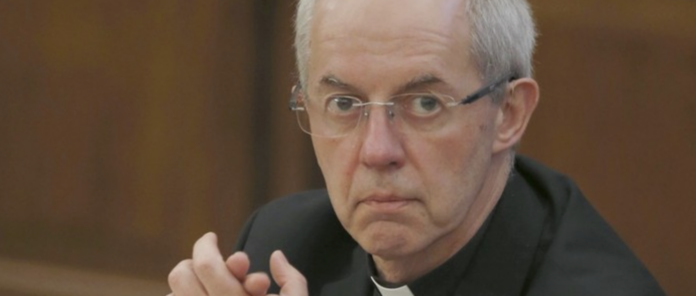In the last few decades, there have been two distinct trends in Christianity. First, there is a growing schism in Christianity between those who adhere to traditional doctrines and those who are more liberal. They either choose which doctrines they want to follow or reject orthodoxy altogether. Second, the Christian influence is shifting from the West to the East and particularly Africa.
Recent developments in the Anglican Church reflect both of these trends. The Global Anglican Future Conference, which met last week in Rwanda, concluded that the Church of England’s Archbishop of Canterbury Justin Welby should be distanced from his decision to “bless same-sex marriages” even though the Church will not perform gay wedding ceremonies.
Most of the churches that are part of GAFCON and have taken the side for scriptural truth and morality, are located in Africa or South America. However, some are also in the U.S.A., UK, Australia and Asia.
The Wall Street Journal reports that “Conservative Anglican Leaders said their church was riven by differences over homosexuality and could no longer recognise England’s Archbishop Canterbury as the first among equals. They called for a revamp of how the global denominations is led.”
Gafcon has gone so far as saying that it does not accept Welby’s leadership as a leader of a church.
The Kigali commitment, GAFCON’s official statement after the conference, states: “We do not have confidence that the Archbishop of Canterbury or the other Instruments of Communion (the Lambeth Conference and the Anglican Consultative Council) will be able to offer a godly path forward that is acceptable to those committed to truthfulness, clarity and sufficiency of Scripture.” The Instruments of Communion failed to maintain true fellowship based on God’s Word and shared faith in Christ.
The Kigali Commitment notes that the current Anglican Communion divisions are due to radical departures from Jesus Christ’s gospel. Some in the Communion are captive to hollow and deceptive worldly philosophies (Colossians 2:18). This failure to listen and obey God’s word undermines the mission as a church.
The fight began in February, when Welby supported a proposal by some bishops that would bless same-sex marriages. In February, ten provinces of the Anglican Church signed a letter denouncing Welby’s leadership.
Harry Farley, a BBC reporter at the time, wrote: “Archbishops from 10 of the Anglican Communion’s 42 provinces have signed a declaration saying that they no longer regard Mr. Welby as ‘leader’ of the global Communion. They added that the Church of England had been ‘disqualified as’ their historic ‘Mother Church. ‘”
Welby’s Office responded by stating that rules governing the Anglican Communion are “always able to adapt to the times, and have done so before.” This means the Church of England has a greater commitment to following the whims of the culture than to the truths found in the Bible.
GAFCON was criticized by other clergy who were willing to bow down to the LGBT idolaters.
Rev. Andrew Foreshew Cain is married and gay. It is time to acknowledge the de facto separation by those in the historic Communion as well as those who now have their own.
It may be time to separate the (theologically, and politically) conservative from liberal wing of Anglicanism. This is similar to what the conservative Presbyterian Church in America separated from the liberal Presbyterian Church in the USA in the second half of the 20th Century.
On Wednesday, Dr. Albert Mohler discussed the differences in hermeneutics within Anglicanism.
Mohler stated that those who stand on biblical authority and who defend the faith delivered to the saints must say: “Look, if we are moving to approve, celebrate, and bless what the Bible makes impossible and unthinkable, then you have left the Christian faith and not us.”
It’s not a matter of “agreeing to disagree”. The fundamental question is whether or not these bishops and archiepiscops are following the Word of God, or if they are following culture. We’ll find out who sticks to their faith.


